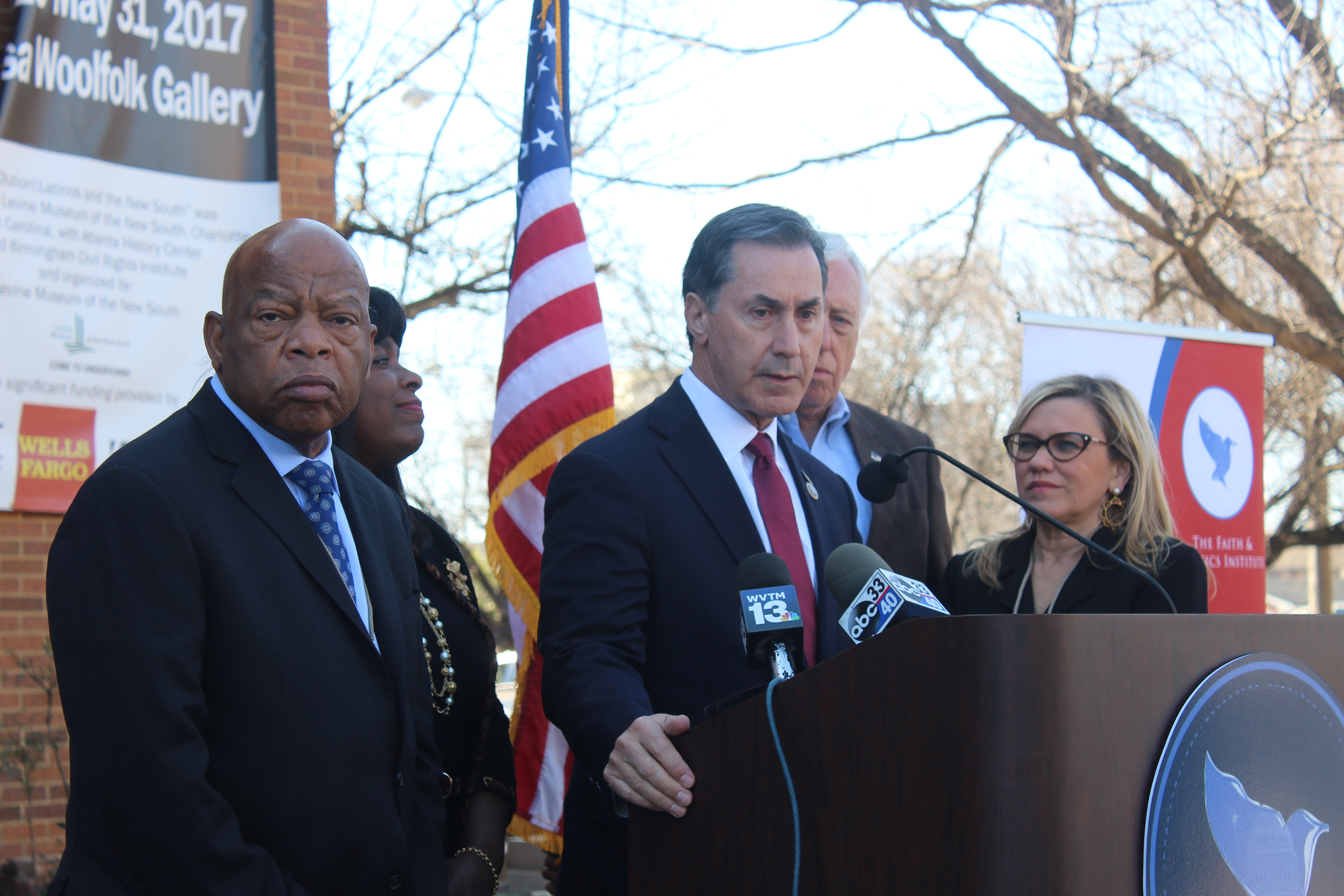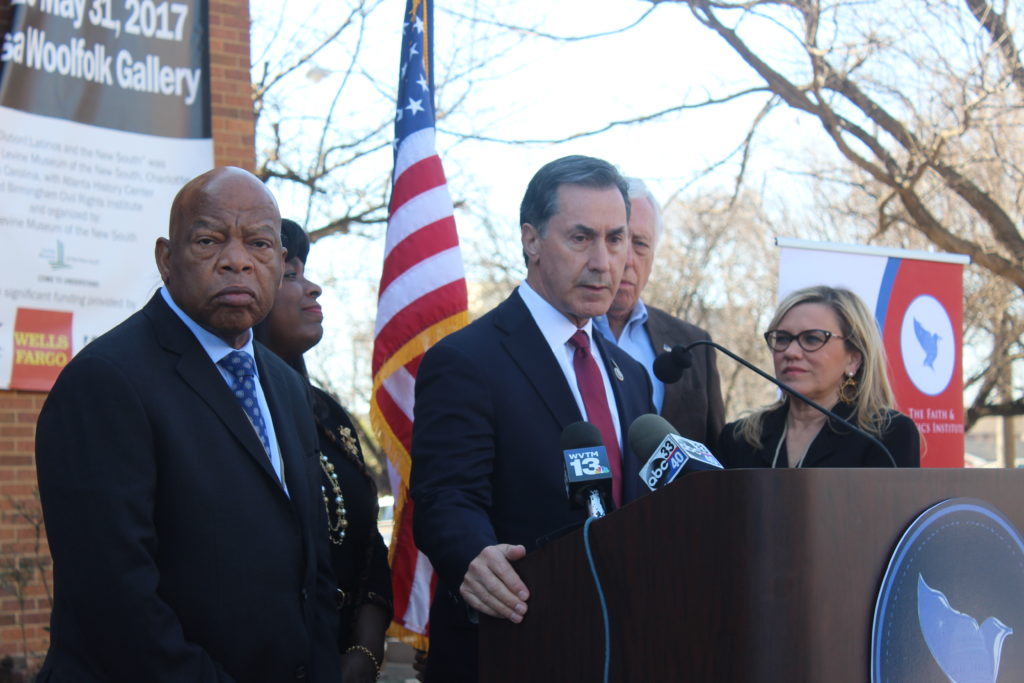
By Ariel Worthy
The Birmingham Times

A bipartisan delegation of Congressional members – blacks and whites; Democrats and Republicans; men and women — on Friday toured the downtown Birmingham Civil Rights District as part of a pilgrimage to 12 sites including landmarks in Montgomery and Selma.
The Faith and Politics Institute’s 2017 Congressional Civil Rights Pilgrimage included historic Alabama civil rights landmarks such as Birmingham’s Sixteenth Street Baptist Church, Selma’s Edmund Pettus Bridge, and the Civil Rights Memorial in Montgomery.
Congresswoman Terri Sewell (D-AL) said the lessons of the Civil Rights Movement are as important now as ever given the division in Washington.
“It talks about forgiveness and reconciliation and those are important values that we can take back to Washington D.C. and our work,” Sewell said. “Just because we come from different parties doesn’t mean we don’t want the same thing. All of us want our constituents to have better jobs, better lives, better education. We just disagree on how to get there.”
“This is a great opportunity for us to take a spiritual journey and to right our minds about what we are doing in Washington so that we can represent all Americans,” Sewell added.
Congressman Gary Palmer (R-AL) said he wanted his colleagues to see how the state is changed over the past decades.
“Alabama has truly become a state of faith and forgiveness,” said Palmer. “We literally stand in the shadow of the Birmingham Civil Rights Institute that will be celebrating its 25th anniversary. We have a lot to be proud of in this state and there are some things that hurt us, but we have so much more going for us now.”
Congressman John Lewis (D-GA), who is from Troy, Alabama, said the country has come a long way.
“I saw the signs that said ‘white’ and ‘colored.’ The signs are gone and they will not return,” Lewis said. “Now they have other signs, but we will come together – Republican, Democrat, men and women of good will, Asian, Hispanic, black and white – we’re going to get it together. I think there is a greater sense of hope in this region than any other region in America today.”
According to Lewis, the South is undergoing a “non-violent revolution.”
“A revolution of values, a revolution of ideas, it is unbelievable, it’s almost unreal to come back and visit parts of Birmingham, or Selma… there’s so much we can learn from this mission and this journey,” he said.
Congressman Steny Hoyer (D-MD) has made the trip for the past 14 years.
“I am encouraged by the change I see when I come here. I’m not from here, but as a young man at 22 I saw the confrontation in Alabama and Mississippi,” he said.
Hoyer brought his two granddaughters and a great-granddaughter. “I want all of them to be energized and understand that we are all Americans irrespective of the superficial distinctions that we may focus on from time to time,” he said.
Since 1998, The Faith and Politics Institute has led annual bipartisan Congressional Civil Rights Pilgrimages to five southern states affording hundreds of members of the U.S. House and Senate a journey through the American civil rights movement as well as international trips.
This year the Institute explored the Impact of Women of the Civil Rights Movement.
“I think it is truly befitting that this year we’re casting a light on women and our first stop was the Sixteenth Street Baptist Church” where little girls died in a 1963 bombing, Sewell said.
The delegation left Birmingham on Friday and stopped in Montgomery Saturday and Selma Sunday.




